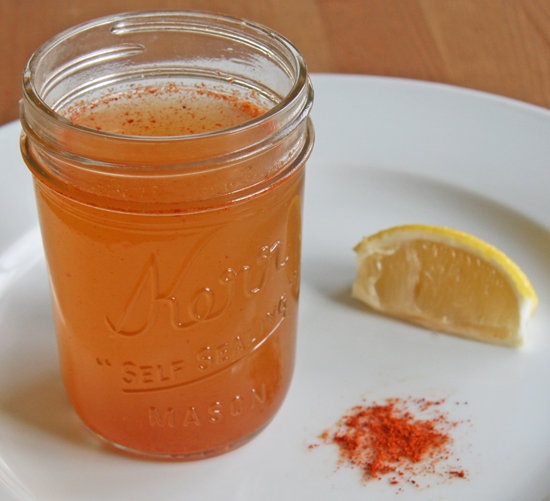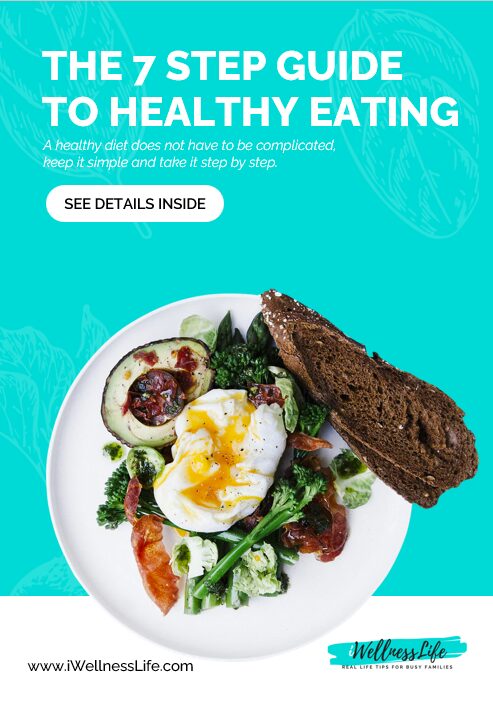There’s a growing body of research suggesting that what we eat directly impacts our mental health. It’s not just about weight and physical health anymore – our diet can influence our mood and cognitive function too. This blog post aims to shed light on the best foods and supplements for mental health. We’ll cover the importance of Omega-3s, leafy greens, and whole grains to brain health, and how berries and dark chocolate can bolster your mood. We’ll then take a closer look at supplements like Vitamin D, B vitamins, magnesium, and probiotics, and their roles in supporting mental well-being. Ready to give your mental health a nutritional upgrade? Let’s get started.
Key Takeaways
-
Omega-3 fatty acids from fish and walnuts can reduce depression and anxiety.
-
Leafy greens like spinach and kale, rich in folate, can help improve memory and reduce depression risk.
-
Whole grains provide complex carbohydrates that support neurotransmitter function and stabilize energy levels.
-
Berries are high in antioxidants that can help prevent depression and improve cognitive function.
-
Supplements like Vitamin D, B vitamins, magnesium, and probiotics can support mental well-being and cognitive health.
The Role of Diet in Mental Health
Reflecting on how nutrition influences mental health, the best foods and supplements for mental health have been noted to contain certain vitamins and minerals. Omega-3 fatty acids, B vitamins, and Vitamin D are among the nutrients necessary for proper brain function.
Incorporating these nutrients into your diet can help manage mental health problems. For instance, Omega-3 rich foods like salmon and walnuts can support brain health by promoting healthy blood flow and regulating serotonin levels. Leafy greens like spinach and kale, loaded with folate, may help to reduce the risk of mental health issues such as depression and cognitive decline.
Whole grains provide complex carbohydrates, supporting steady energy levels and neurotransmitter function. Foods like berries and dark chocolate, laden with antioxidants and flavonoids respectively, can help to improve cognitive function and mood.
Dietary supplements can further support mental health. Vitamin D is known to modulate mood and cognitive function, B vitamins play a central role in neurotransmitter function, and magnesium promotes relaxation and better sleep. Probiotics, on the other hand, can support gut-brain axis function, potentially reducing anxiety.
To naturally support mental health, consider adding these foods to your meals and consult with a healthcare provider about relevant supplements. For more detailed guidance on these foods and supplements, you may find our posts on nutrition and superfoods helpful.
Top 5 Foods for Better Brain Health
Let’s zero in on five stellar foods and supplements that can ramp up your brain health.
-
Omega-3 rich foods: Salmon and walnuts are high in these fatty acids, known to improve blood flow and regulate serotonin levels, easing depression and anxiety.
-
Leafy greens: Packed with folate, spinach and kale can help combat depression and sharpen memory and focus.
-
Whole grains: Foods like oats and quinoa are rich in complex carbs, ideal for steady energy release and neurotransmitter upkeep.
-
Berries: These antioxidant-rich fruits can alleviate depression symptoms and bolster cognitive health.
-
Dark Chocolate: With mood-enhancing flavonoids, a small piece of dark chocolate delivers a pleasing punch to the palate and brain alike.
With these foods for bettering brain health, you can tackle mental health issues head-on. Always remember, a balanced diet can be a real game-changer for cognitive function and mental well-being. Buckle up and give your brain a nutritional joyride!
Importance of Omega-3 Rich Foods
The relevance of foods rich in Omega-3 in our diets is undeniable, particularly when considering mental health. Foods like salmon and walnuts, packed with Omega-3 fatty acids, can play a part in alleviating symptoms of depression and anxiety. This happens through two main mechanisms: promoting healthy blood flow to the brain and regulating serotonin levels, which is a neurotransmitter linked to mood. So, here are the five best foods and supplements for mental health:
-
Fatty fish: This is a top source of Omega-3 fatty acids.
-
Walnuts: High in Omega-3, they’re a great snack option.
-
Flaxseeds: Another Omega-3 rich food, it can be added to cereals or yogurt.
-
Chia seeds: These tiny seeds are packed with Omega-3.
-
Fish oil supplements: If you don’t enjoy eating fish, this is a good alternative.
Remember, boosting mental health can be as simple as adding these Omega-3 rich foods to your diet.
The Effect of Leafy Greens on Cognitive Function
Focusing on the impact leafy greens have on brain health, they are truly one of the best foods and supplements for mental health. Packed with folate, leafy greens such as spinach and kale help ward off depression, lower dementia risks, and sharpen memory and focus. Here are the top 5 benefits of including leafy greens in your diet:
-
Combat depression: Folate boosts serotonin levels, the mood-enhancing neurotransmitter.
-
Reduce dementia risk: Higher folate intake is linked to a lower risk of dementia in older adults.
-
Improve memory: Folate helps in the production of brain cells, improving memory function.
-
Enhance concentration: Regular intake of leafy greens can help increase attention span.
-
Natural mental health support: Leafy greens provide a natural way to support cognitive health.
Incorporate leafy greens in your daily meals and experience the improvement in your cognitive function. If you need more guidance, our supplement guide has more insights on boosting mental health.
Why Whole Grains are Good for Mental Health
Let’s probe into the benefits of whole grains for brain health. Consuming these grains, such as oats, beans, and quinoa, can be a game-changer. Here’s why:
-
Slow Glucose Release: The complex carbs in whole grains provide a steady energy supply. No more energy crashes!
-
Neurotransmitter Function: These grains support your brain’s communication system, aiding in mood regulation.
-
Mental Health Support: Regular consumption can help tackle mental health problems.
-
Brain Function: Whole grains play a part in maintaining cognitive health.
-
Older Adults: Including whole grains in the diet can support cognitive function in older adults.
Remember to opt for whole grains over processed ones to reap these benefits. It’s a natural way to improve cognitive function and mental health.
The Brain-Health Benefits of Berries
Exploring the brain health benefits, berries are among the best foods and supplements for mental health. High in antioxidants, they can help fend off symptoms of depression and bolster cognitive function.
Consider this as your checklist to support cognitive health:
-
Snack on a handful of berries daily.
-
Add them to your breakfast cereals or smoothies.
-
Include them in desserts and salads.
-
For those with sweet tooth, opt for berry jams or jellies.
-
If berries are out of season, try freeze-dried ones, or better yet, berry supplements.
For more about how certain foods can lighten your mood, you can head over to our previous blog post.
Dark Chocolate and its Mood-Enhancing Qualities
We’re spotlighting the mood-enhancing properties of dark chocolate. A treat to the taste buds and the brain, dark chocolate is a standout in the best foods and supplements for mental health. Especially in older adults, it can help alleviate mental health issues and problems.
Dark chocolate is rich in flavonoids – compounds known to positively influence mood, memory, and attention. But the magic doesn’t stop there. Dark chocolate can even help reduce symptoms of cognitive decline.
Here’s how to incorporate dark chocolate into your routine for a natural mental health lift:
-
Enjoy a square or two of dark chocolate post meals.
-
Add dark chocolate chips to your morning oats.
-
Blend dark chocolate into your protein shake.
-
Try a dark chocolate smoothie bowl for breakfast.
-
Include dark chocolate chunks in your trail mix.
You see, boosting mental health can be as simple as enjoying some dark chocolate!
Nutritional Supplements for Mental Well-being
Tending to your brain’s nutritional needs can help in the battle against mental health disorders. Fish, rich in Omega-3 fatty acids, and leafy greens, loaded with folate, are excellent for fighting depression and improving cognition. Whole grains, berries, and dark chocolate are other natural remedies for improving mood and cognitive function. For an extra helping hand, consider supplements like Vitamin D, B vitamins, and probiotics to further support brain function. If you’re looking to incorporate these diet changes, here’s a little guidance from our blog. So, let’s get started on boosting mental health one meal at a time!
Vitamin D: A Mood-Modulating Supplement
“Regulating mood with Vitamin D,” might sound like magic, but science backs it up. By activating receptors in the brain, Vitamin D can uplift your mood and sharpen your cognition. This sunshine vitamin is one of the best foods and supplements for mental health.
Here are five ways to get the most out of Vitamin D:
-
Soak up the sun: Spend 10-30 minutes outside during midday.
-
Eat fatty fish: Salmon, mackerel, and tuna are rich in Vitamin D.
-
Savor egg yolks: They’re a great source of this mood-optimizing nutrient.
-
Choose fortified foods: Some dairy products, orange juice, and cereals have added Vitamin D.
-
Consider a supplement: If you’re deficient, a daily Vitamin D supplement can help.
Remember, a brighter mood could be just a sunbeam away!
B Vitamins and their Role in Brain Function
Delving into the role played by B Vitamins in promoting mental well-being, it becomes clear that these nutrients are integral to brain health.
B6, B9, and B12, in particular, play a pivotal role in neurotransmitter function and energy metabolism, which can lower the risk of depression and cognitive impairment.
To improve brain function and cognitive function, consider adding foods rich in these vitamins to your diet. Options include green leafy vegetables, poultry, and grains. As an alternative, you might want to consult a healthcare provider about adding B Vitamin supplements to your routine.
Consequently, these vitamins are a great resource for older adults looking to mitigate mental health problems and boast mental health.
Magnesium: The Relaxation Mineral
Recognized widely as the mineral of relaxation, magnesium plays a cardinal role in promoting mental well-being. By reducing the levels of the stress hormone, cortisol, it induces relaxation and fosters better sleep – two critical components for a healthy mind.
To improve brain function, consider foods rich in magnesium, such as almonds, spinach, and avocados. Or, consider a magnesium supplement after consulting a healthcare provider.
Here’s a list to get you started:
-
Add almonds to your diet, or as a snack.
-
Make spinach a regular part of your meals.
-
Enjoy an avocado as a healthy treat.
-
Consult a healthcare provider about magnesium supplements.
-
Incorporate magnesium-rich foods into your routine to support cognitive health.
Probiotics and Their Impact on Brain Health
Examining the correlation between brain health and probiotics reveals a fascinating interplay. Research tells us that the best foods and supplements for mental health often contain these beneficial bacteria. Probiotics influence the gut-brain axis, which is a two-way communication system between our gut and our brain.
Here’s a quick rundown:
-
Probiotics maintain a healthy gut environment.
-
Healthy gut aids in the production of mood-regulating hormones like serotonin and dopamine.
-
The improved hormone production, in turn, uplifts mood and decreases anxiety.
So, for a brain health booster, don’t overlook the role of probiotics.
4 Tips to Incorporate Mental Health-Enhancing Foods and Supplements into Your Routine
Exploring ways to weave in foods and supplements that promote mental well-being into your daily routine? Here are four practical pointers.
Tip one, enjoy a serving of fatty fish, or take a fish oil supplement. Doing so helps improve brain function given the Omega-3 fatty acids found in these.
Tip two, make leafy greens a staple of your meals. They’re chock-full of folate, a nutrient known to cognitive function.
Tip three, swap out processed grains for whole grains. This simple switch can significantly enhance your mental health.
Tip four, consider adding Vitamin D, B vitamins, or probiotics to your regimen. But, always consult with a healthcare provider before beginning any new supplement.
Remember, these tips aren’t just for older adults. Everyone can benefit from a diet that improves mental health!

Subscribe To Our VIP Newsletter
Join our VIP mailing list to receive additional content that goes even deeper into the latest tips to ensure you and your families health, fitness and wellness.























